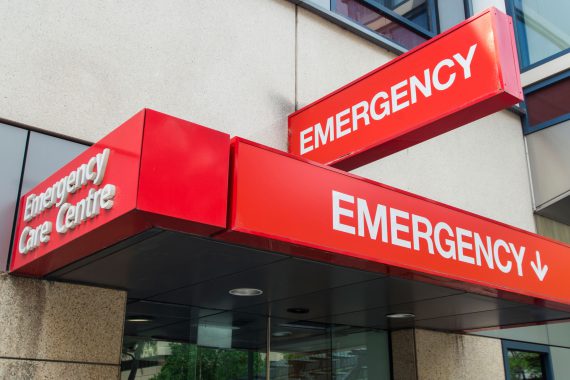The British Red Cross has said it has deployed staff to help in hospital and provided transport for discharged patients due to the current ‘humanitarian crisis’ in the NHS.
The charity has said that it has supported the East Midlands Ambulance Service and is currently in talk with a number of hospitals about providing additional support.
In a statement, its chief executive warned that patients are being sent home without clothes in some cases, with inappropriate care when they get home leading to them suffering falls and not being found for days.
The Red Cross called on the UK Government to ‘allocate immediate funding to stabilise the current system and set out plans towards creating a sustainable funding settlement for the future.’
It comes as the Royal College of Medicine has warned that only 77.62% of patients were seen within the four hour target in the past week, the worst performance since it started measuring two years ago. This is despite an increase in beds being made available.
The BMA warned last month that the NHS is less prepared to cope with winter pressures than ever before, while the Nuffield Trust today reported that 50 trusts are facing pressures that are compromising patient flow, with seven unable to provide comprehensive care.
The Red Cross issued a statement today saying that it is providing help to cover what it called a ‘humanitarian crisis’.
It said it had taken action such as:
- Aiding the ambulance service, including supporting the East Midlands Ambulance Service on New Years Day;
- Increasing the service that helps people’s social needs, Support at Home, to help the flow of patients in and out of hospitals;
- Deploying staff to support matrons at Derriford Hospital in Plymouth (currently on black alert);
- Arranging transport for discharged patients and organising volunteers to help these patients settle into their homes;
It added that it is in discussions with other hospitals on ways to help.
Mike Adamson, chief executive of the British Red Cross, said: ‘The British Red Cross is on the front line, responding to the humanitarian crisis in our hospital and ambulance services across the country. We have been called in to support the NHS and help get people home from hospital and free up much needed beds. This means deploying our team of emergency volunteers and even calling on our partner Land Rover to lend vehicles to transport patients and get the system moving.’
The British Red Cross attributes this crisis to a ‘lack of social care provision… with not enough support to help transfer people back into their homes and communities’ and stress the importance of helping vulnerable patients when leaving hospital.
They also mention cuts to social care and a need to join up health and social care better as contributing factors.
The Royal College of Emergency Medicine said that its Winter Flow Project – which monitors emergency service performance over the winter – this week recorded the worst level of performance in the two years it has run, with 23% of patients failing to be seen within four hours.
This is 11 percentage points down on the same time last year.
In a statement, it said: ‘This is despite another increase in beds being made available over the week, in a continued effort to ease pressure. Delayed transfers of care also started to rise again.
‘Given that there is a well-established link between Four Hour Standard performance and clinical outcomes for patients, the Winter Flow data published this week is surely a sign of an emergency medicine system in crisis. The fact that we have reached 77% already – with much of the winter still to come – makes grim reading.’
Pulse July survey
Take our July 2025 survey to potentially win £1.000 worth of tokens












